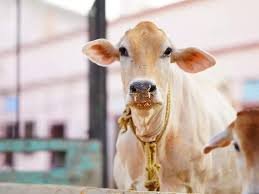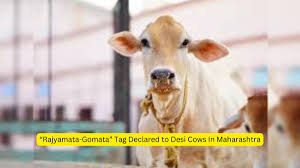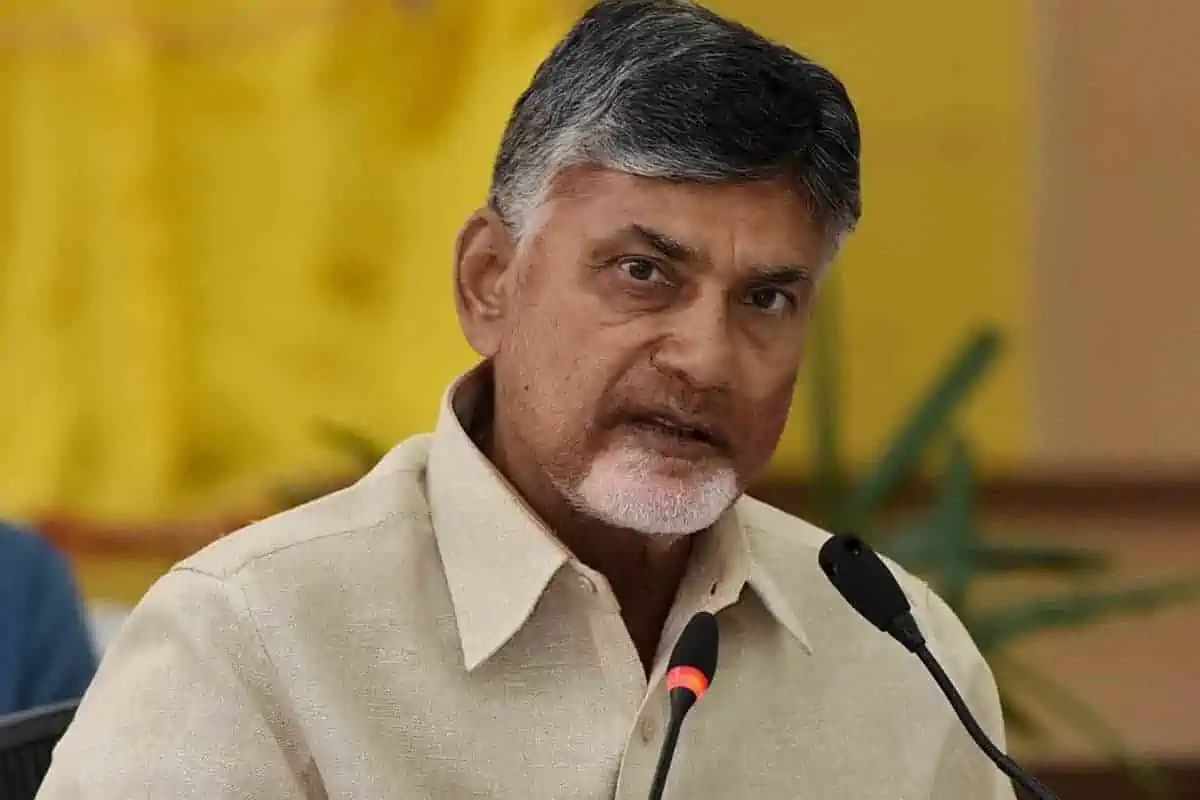Rajyamata Gomata Tag Declared for Desi Cows in Maharashtra
In a significant move to promote the welfare of indigenous cattle, the Maharashtra government has declared the “Rajyamata Gomata” tag for desi cows. This initiative aims to honor and recognize the cultural and economic importance of these animals, particularly in rural communities. The decision was announced by Maharashtra’s Animal Husbandry Minister, Sunil Kedar, during a recent event celebrating the value of traditional livestock in the state.
Cultural Significance of Desi Cows
Desi cows hold a prominent place in Indian culture and traditions. They are often associated with agrarian practices, and their contribution to sustainable farming is invaluable. The Rajyamata Gomata tag aims to instill pride among farmers, encouraging them to rear and protect indigenous breeds. By promoting these cows, the government seeks to preserve traditional farming practices that have been passed down through generations.
Economic Benefits for Farmers
The recognition of the Rajyamata Gomata tag is not just a symbolic gesture but also carries economic implications. By providing support and resources for desi cow rearing, the government aims to enhance the income of farmers. Desi cows are known for their high-quality milk and resilient nature, making them an asset for sustainable agriculture. The government plans to implement various schemes to incentivize farmers to adopt and care for indigenous breeds.
Preservation of Biodiversity
This initiative also plays a crucial role in the preservation of livestock biodiversity. With the increasing dominance of crossbred and exotic cattle, indigenous breeds are at risk of extinction. The Rajyamata Gomata tag aims to create awareness about the importance of biodiversity in livestock and encourage efforts to conserve these invaluable breeds. By fostering a sense of responsibility towards indigenous cows, the government hopes to ensure their survival for future generations.
Community Involvement and Support
The success of the Rajyamata Gomata initiative largely depends on community involvement. The Maharashtra government plans to engage local communities in the promotion and protection of desi cows. By organizing awareness campaigns and training programs, they aim to educate farmers about the benefits of indigenous breeds and the necessary care required for their well-being. This community-centric approach will empower farmers and strengthen the bond between them and their livestock.

Why This News is Important
Promoting Indigenous Livestock
The declaration of the Rajyamata Gomata tag for desi cows is crucial in promoting indigenous livestock, which is integral to India’s agricultural heritage. By recognizing the importance of desi cows, the government is encouraging farmers to embrace traditional practices that contribute to sustainable farming.
Economic Growth for Farmers
This initiative has the potential to boost the economic condition of farmers in Maharashtra. By providing support for desi cow rearing, farmers can enhance their income through the sale of high-quality milk and other dairy products. This economic upliftment can have a ripple effect on rural development.
Sustainability and Biodiversity
The initiative contributes significantly to the preservation of biodiversity in livestock. As the world faces challenges related to climate change and food security, maintaining a diverse gene pool in livestock is essential for resilience and adaptability.
Cultural Heritage Preservation
Desi cows are an integral part of Indian culture and traditions. By promoting these animals, the government is preserving the cultural heritage associated with agriculture, thereby fostering a sense of pride and identity among farmers.
Strengthening Community Engagement
The Rajyamata Gomata initiative emphasizes community involvement in livestock management. This approach can lead to better awareness, education, and collaboration among farmers, ultimately benefiting the agricultural sector as a whole.
Historical Context
Traditional Livestock in India
Historically, desi cows have been revered in Indian culture, symbolizing prosperity and sustenance. They have been central to rural livelihoods, providing milk, labor, and organic fertilizers. The significance of these cows extends beyond economics; they are often involved in religious rituals and community gatherings.
Decline of Indigenous Breeds
Over the years, there has been a significant decline in indigenous cattle breeds due to the proliferation of crossbreeds and exotic cattle, which are perceived to produce more milk. This shift has led to a loss of biodiversity and traditional knowledge associated with desi cows. Recognizing this issue, various states have initiated measures to revive interest in indigenous breeds.
Government Initiatives
Maharashtra’s declaration of the Rajyamata Gomata tag aligns with broader governmental efforts to promote sustainable agriculture and protect indigenous species. Several schemes and policies have been implemented over the years to support farmers in rearing traditional livestock, emphasizing the need to preserve the ecological balance and cultural heritage associated with indigenous breeds.
Key Takeaways from “Rajyamata Gomata Tag Declared for Desi Cows in Maharashtra”
| Serial Number | Key Takeaway |
|---|---|
| 1 | Maharashtra government declares the “Rajyamata Gomata” tag for desi cows. |
| 2 | The initiative promotes cultural pride and economic support for farmers. |
| 3 | Desi cows contribute to sustainable agriculture and biodiversity preservation. |
| 4 | The government plans to implement schemes to incentivize indigenous cow rearing. |
| 5 | Community involvement is crucial for the success of the initiative. |
Important FAQs for Students from this News
Q1: What is the “Rajyamata Gomata” tag?
A1: The “Rajyamata Gomata” tag is a recognition declared by the Maharashtra government for desi cows, emphasizing their cultural and economic importance in rural communities.
Q2: Why is the government promoting desi cows?
A2: The promotion aims to enhance the livelihoods of farmers, preserve biodiversity, and maintain traditional farming practices that are integral to Indian culture.
Q3: How will the Rajyamata Gomata initiative benefit farmers economically?
A3: By supporting desi cow rearing, farmers can increase their income through the sale of high-quality milk and dairy products, thus improving their overall economic conditions.
Q4: What role do desi cows play in Indian agriculture?
A4: Desi cows contribute significantly to sustainable farming practices, providing milk, labor, and organic fertilizers while maintaining a diverse gene pool essential for resilience.
Q5: How can the community get involved in the Rajyamata Gomata initiative?
A5: The government plans to engage local communities through awareness campaigns and training programs to promote the care and management of desi cows.
Some Important Current Affairs Links

















